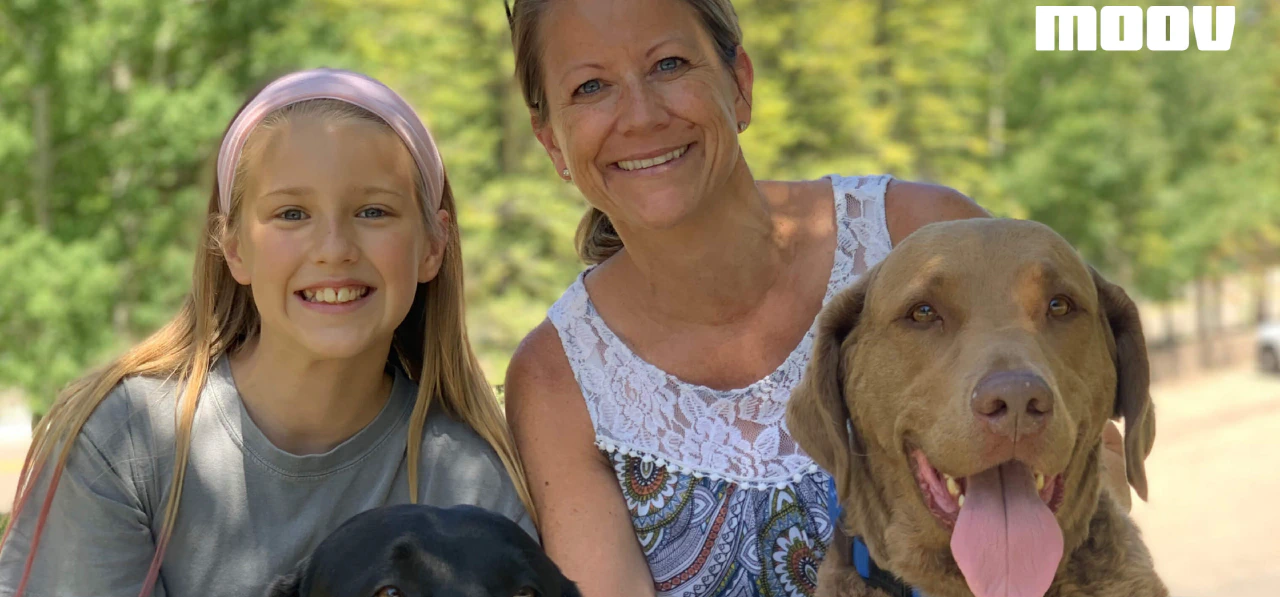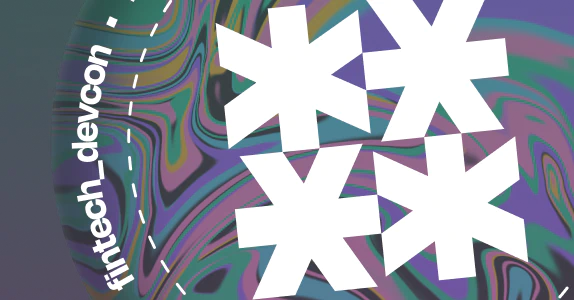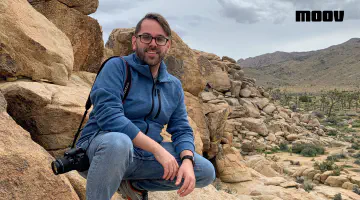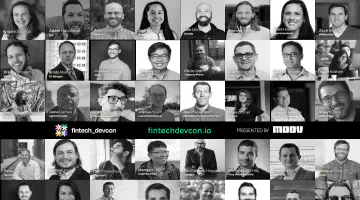
Why I joined Moov: Carrie Dolan
Life has a funny way of trying to fit people into similar molds.
The human brain makes sense of the world through order, so when square peg people don’t fit into the round holes of society, things get uncomfortable.
I was one of these square peg anomalies growing up, but not because I didn’t fit into a “normal” box. Instead, I wanted to fit into all the boxes. Most children are indeed fascinated by many different things, but my extreme curiosity and inquisitiveness were off the charts. So much so that it created tension with the world around me.
Don’t get me wrong, my parents and teachers loved my adaptability and supported my obsession with learning. But overall, society tends to encourage us to follow our strengths. Even universities and corporate jobs push us towards specialization. From an early age, I didn’t want to be pigeonholed into one path or expertise. Wanting to learn and explore every subject, read every book, listen to every music genre, and devour every topic meant showing the “one size fits most” believers that I could, in fact, mold myself to any path I set my mind to.
And I did just that. Growing up, I took in as much knowledge as I could and didn’t limit myself to one favorite subject, hobby, or interest. I would later learn that this skill set isn’t unique to me. Polymaths or multipotentialites are people with an unusually extensive range of interests and no “one true calling.” We constantly strive to become a jack of all trades and a master of them all.
That’s why it was difficult for me to pick one area to major in college because I wholeheartedly wanted to be a veterinarian, an oceanographer, a hotel manager, a teacher, a news journalist and a writer for SNL. Luckily, a communications degree offered breadth and many possibilities, which helped me land a great role at an advertising agency.
I couldn’t have asked for a better environment for me. Thanks to a leadership team that was 100% committed to investing in their people and giving them ample opportunities to learn and grow, I thoroughly explored different brands and their diverse industries while trying my hand at new roles across the organization. Not many people can say they’ve worked as an account manager, strategist, researcher, creative, educator, philanthropist and business development specialist while building brands like Coors Banquet, Volant Skis, Silk Soy Milk and more.During my 10 years at Integer, I got to help develop and grow some amazing brands, while also helping many team members grow and realize their full potential—resulting in some of the most rewarding work I’ve ever done.
However, in the typical Carrie fashion of wanting to reinvent myself and try something new, I decided to leave an amazing team and steady paycheck to pursue an opportunity with a dear friend of mine. After working with a few non-profits and reading Chip Conley’s book Marketing that Matters, I felt driven by the significant impact brands could have on the world. We decided to build a purpose-based brand consultancy to work with companies actually making a substantial difference in the lives of others.
While at Sprout, I fell in love with all the brands we helped build, but one in particular stood out to me. Kasasa, a brand that wanted to break the legacy rules of banking and flip the industry on its head, also gave me a whole new perspective on culture, and the role a company’s mission, vision and values could play in driving employee engagement and fierce brand loyalty. In fact, I loved Kasasa so much that I left the agency and consultancy world to lead their marketing team. And of course, it also meant I got to try my hat at yet another new discipline.
After leading the marketing team, I quickly saw just how electric the Kasasa culture was. Even clients would brag about the passion and energy of our teams and would frequently ask what our secret was, and if we could help them create cultures like that for their organizations.
So, as true to my nature, I took it upon myself to answer their call, and started a culture consultancy. I used the 20+ years I’d spent building remarkable brands for consumers and channeled it into helping companies build incredible cultures for their employees.
I’d never worked in HR before. I wasn’t an expert on culture or employee engagement. So I did what I do best: I eagerly learned everything I could. I read books on culture, employer branding, people operations, leadership, entrepreneurship, scaling companies, employee engagement, and more. I learned about Simon Sinek’s philosophy that people don’t buy “what” you do; they buy “why” you do it. I even got certified as a “why” coach and immediately started helping companies and founders discover their reasons for existing, which was foundational in helping them build engaging cultures.
It’s difficult to explain the gratification I felt getting to help businesses and entrepreneurs make a difference in the world and in the lives of their employees. It fills me like no other. A colleague once told me the thing they enjoyed most about working with me was my “sense of possibility” and unwavering desire to create a better future for brands and for people. And now I had the opportunity to do both.
At this point in my career, I got to help others build their brands and cultures, but a part of me longed to build something truly impactful of my own. I joined forces with a long-time friend and colleague (with a shared passion for dogs), and we spent nearly five years bringing to life Waggit, a smart collar for dogs to help prolong their lives and keep them happy, healthy, and safe.
Unfortunately, COVID wasn’t too kind for many new startups, including my own. So while trying to figure out my next path, I continued consulting for a company I’d worked with previously (and who I knew was equally as passionate about culture as I was).
Then it happened.
I received a message from Moov’s CEO, Wade Arnold, who I’d been following for a while, asking if I was still consulting and open to new opportunities. As a big believer in the saying “when one door closes, another one opens,” I had to hear more. And after a few discussions with the core team about the importance of people and culture to Moov, and how they were prioritizing hiring a Chief People Officer as employee number 20, it was immediately apparent that I had found my home.
Moov is everything I’ve ever wanted in a company. From the top-down, the people are extraordinary.
Share thisOur teams are made up of other multi-hyphenates and chameleons who all dislike swimlanes and want to be more than job role checkboxes.
Together we’re building the entire organization from scratch and happily throwing out the rule books in the process. It means I get to lean in and share the skills I’ve gathered along the way while learning from others eager to share their many talents.
What’s more, Moov believes in rebellious exploration, and we embody it in everything we do. We’re truly changing the embedded finance space by making it dead simple to accept, store, and disperse money for virtually anyone. Instead of spending months figuring out complicated processes, developers can instantly embed financial experiences as a cohesive feature into their product. With Moov, any business can become a fintech company, and immediately start adding value to their communities.
Not only are we obsessed with creating wicked good user experiences for our customers, but we’re equally (if not more) obsessed about creating them for our employees, as it’s these collective experiences that define our culture and brand. The leadership knows that creating a company culture shouldn’t be second or third on the business hierarchy. It’s not as simple as buying ping pong tables and incentivizing employees to say nice things on Glassdoor. Even businesses that want to build a genuine culture end up getting trapped by legacy thinking. Many want to do things differently, but they pull out the same old culture map, add a few new stops, but the destination never changes.
Moov is rewriting the entire culture map.
Share thisWe believe in autonomy, trust, and giving people the freedom and space to learn, grow, and define their own molds.
We also operate with radical transparency, lead with optimism, and have created an environment of “people helping people” to support one another in any way we can. What’s more, our people actively spread the Moov love on their own, which absolutely lights me up.
I joined Moov because I believed I’d have the opportunity to do what I love and to do the best work of my life, and that’s why you should too.






